XLPower’s Nimbus 550 is the latest generation 550 class helicopter, utilizing proven design techniques found on the Specter 700 series. The result is a good looking, lightweight, and robust airframe with plenty of options available to customize the appearance and flight style.
The core of the airframe is a single piece 7075 aluminum bearing block assembly and servo mount providing rigidity to the frame and drivetrain. The main shaft is supported with large double row angular contact bearings increasing durability and bearing life to ensure long-term operation.
The cyclic servos are arranged in a 120-degree layout for optimal control geometry and motion over the entire control range. Two kit versions are available based off the pilot’s servo choice: a mini cyclic servo or standard size cyclic mounting bracket. Mini cyclic servos can reduce cost and are lighter weight, while the standard size servo option includes a third main shaft bearing block to support more powerful and robust servos. Both kits use a standard size tail rotor servo and the cyclic servo size mounting assembly is interchangeable with a minimal number of parts. All these components are mounted on high quality 2.5mm thick carbon fiber upper frames and lighter 2mm lower frame plates for unmatched frame strength and crash resiliency.
Similar to the Specter 700 V2, the Nimbus 550 battery tray system is able to be loaded into the helicopter from the front or the rear, enabling the optional quick-connect system in which the model to be powered up/down instantly without removing the canopy. The battery tray accepts all standard configurations all the way up to 12s power systems!
Designed to accept the most powerful power systems, the main gear hub consists of two one-way bearings providing reliability for the most extreme power combinations. A rigid motor mount is fixed directly to the frame’s main support structure, reducing flex under load. An optional second motor shaft support bearing is available for further rigidity.
One of the most notable qualities of the Nimbus 550, and proven on the Specter 700 V2, is the use of a large diameter tail boom (27mm for the Nimbus 550) without the need for boom supports. Not only does a large tail diameter tail boom increase tail performance, but also has a super sleek look. The tail servo and tail control rod are mounted in the upper frame raising the vertical CG to improve flight characteristics.
Every detail has been tested and proven to give pilots the best performance and functionality, such as sacrificial blade grip arms designed to bend or break in a crash, one-piece tail box to simplify the build process and replacement of tail shaft bearings, a damped tail rotor system that stays smooth even at high RPM, plus a low and wide landing gear increasing ground stability; reducing the likelihood of tip-overs in autorotation and hard landings.
With an average flying weight of ~2.9Kg (outfitted with a 5200mAh 6s LiPo) the Nimbus 550 will meet all demands with agile, responsive, and a confidence building feel… flight after flight.
- Gallery
- Description
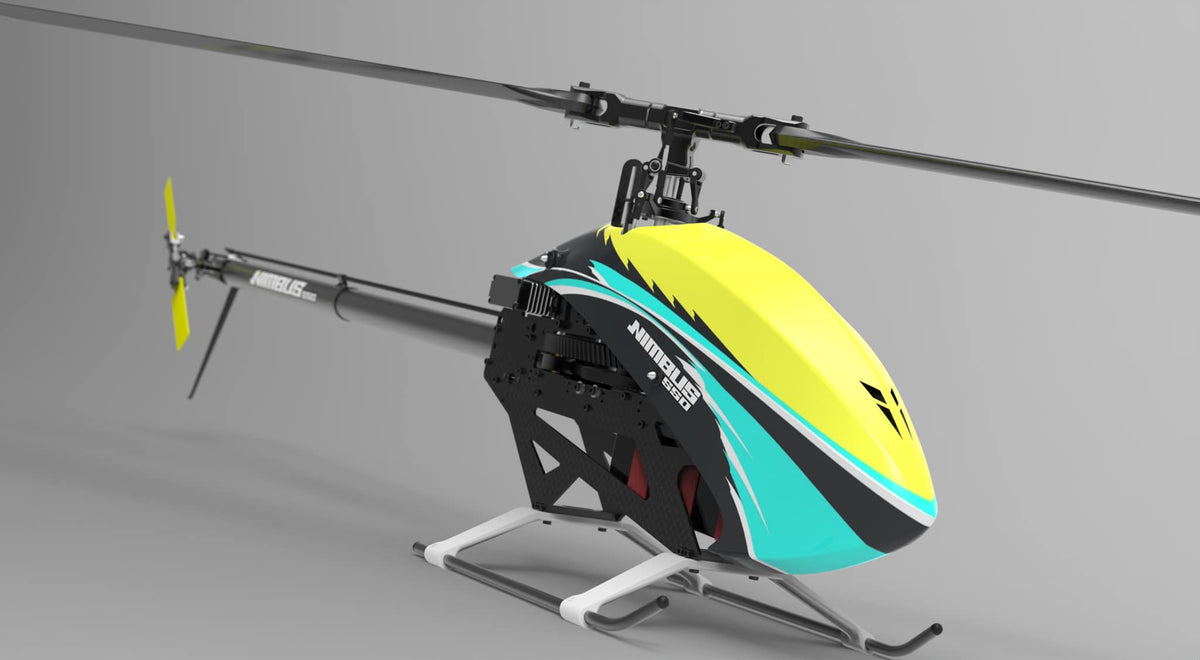
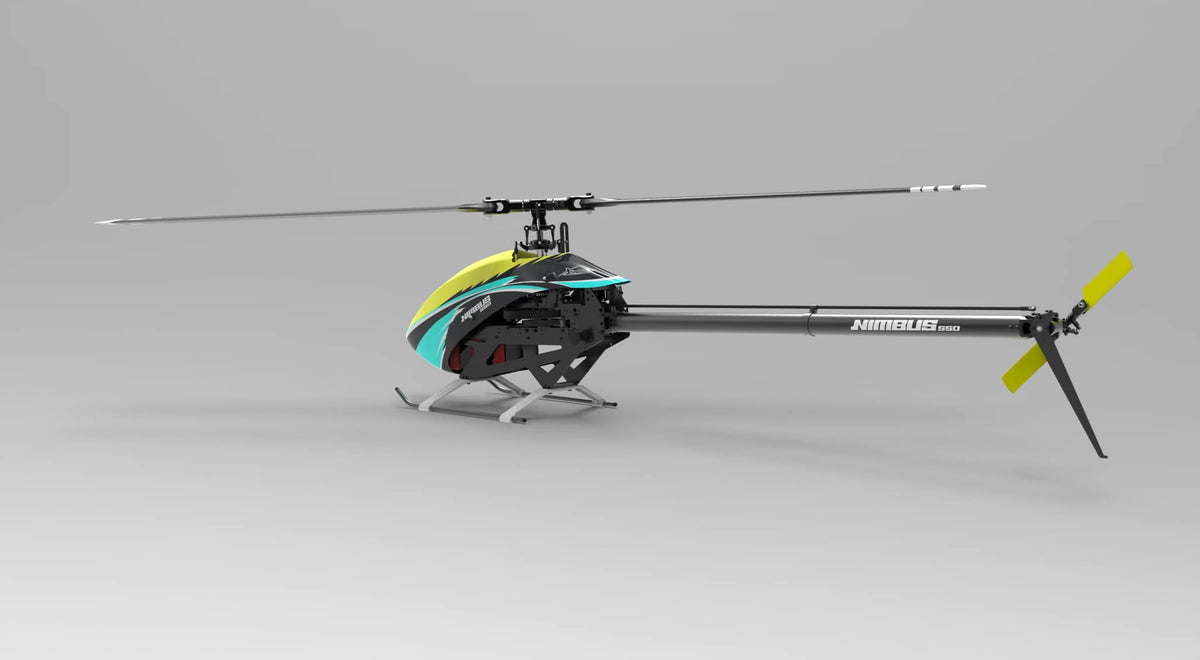
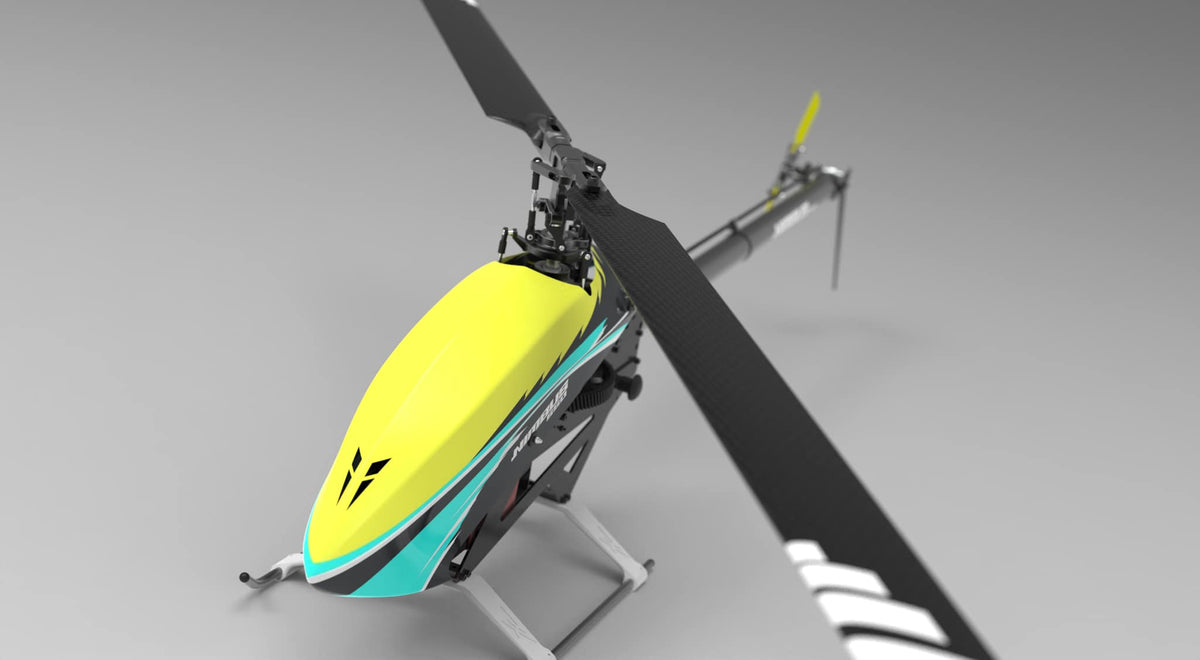
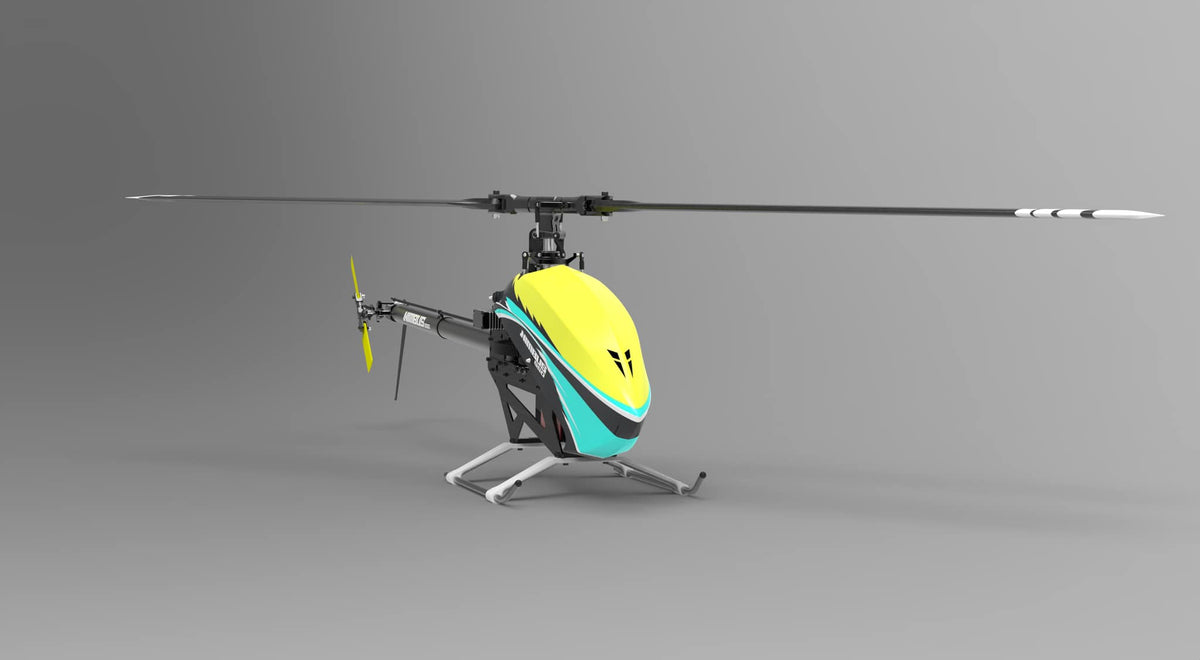
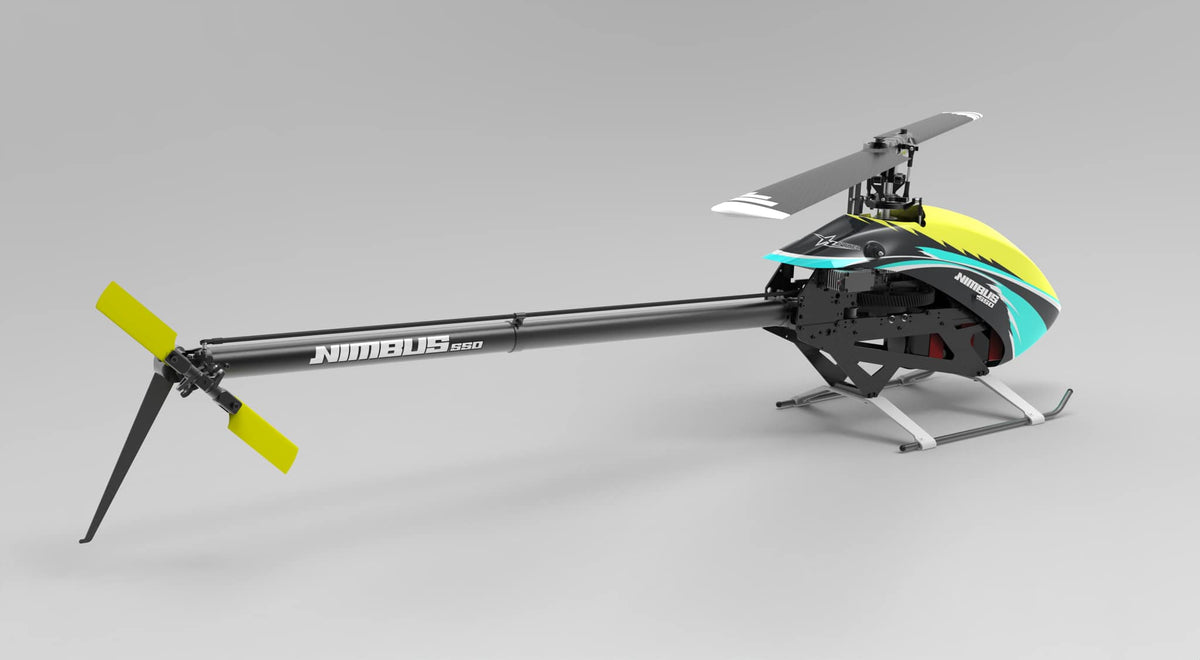
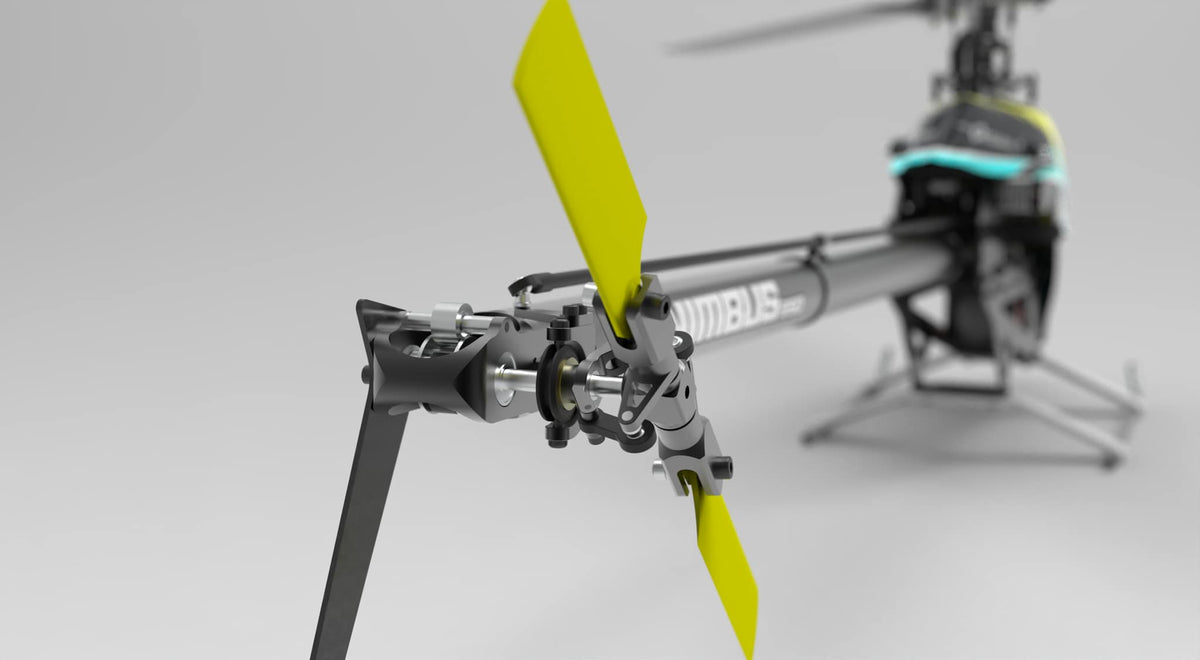
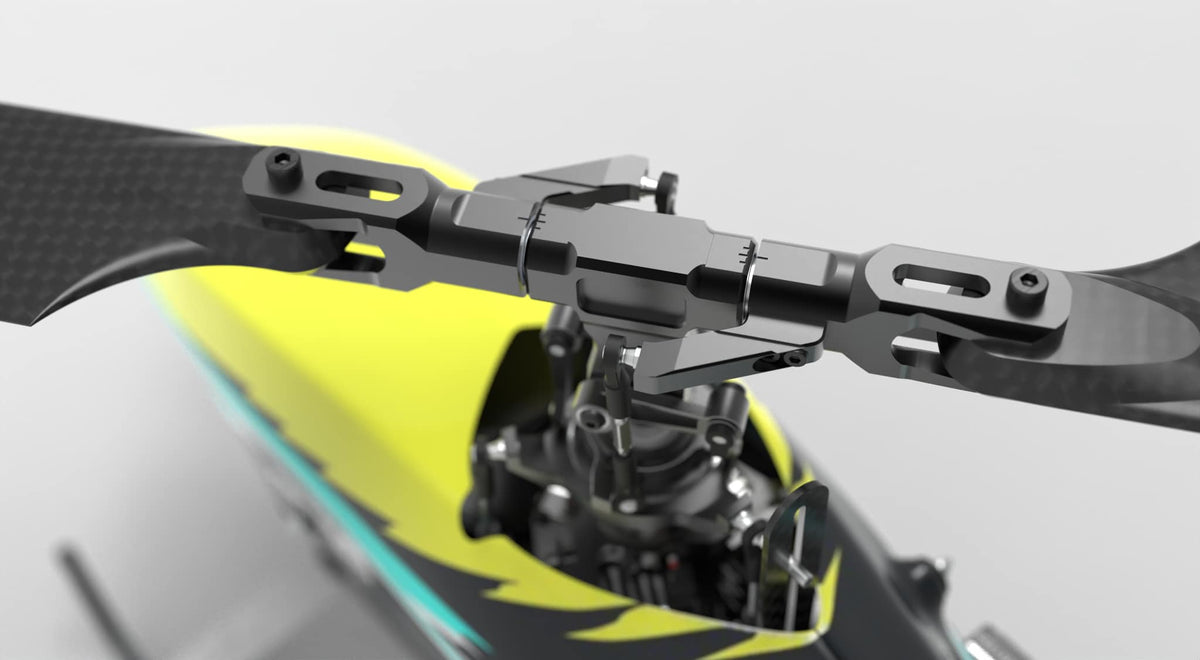
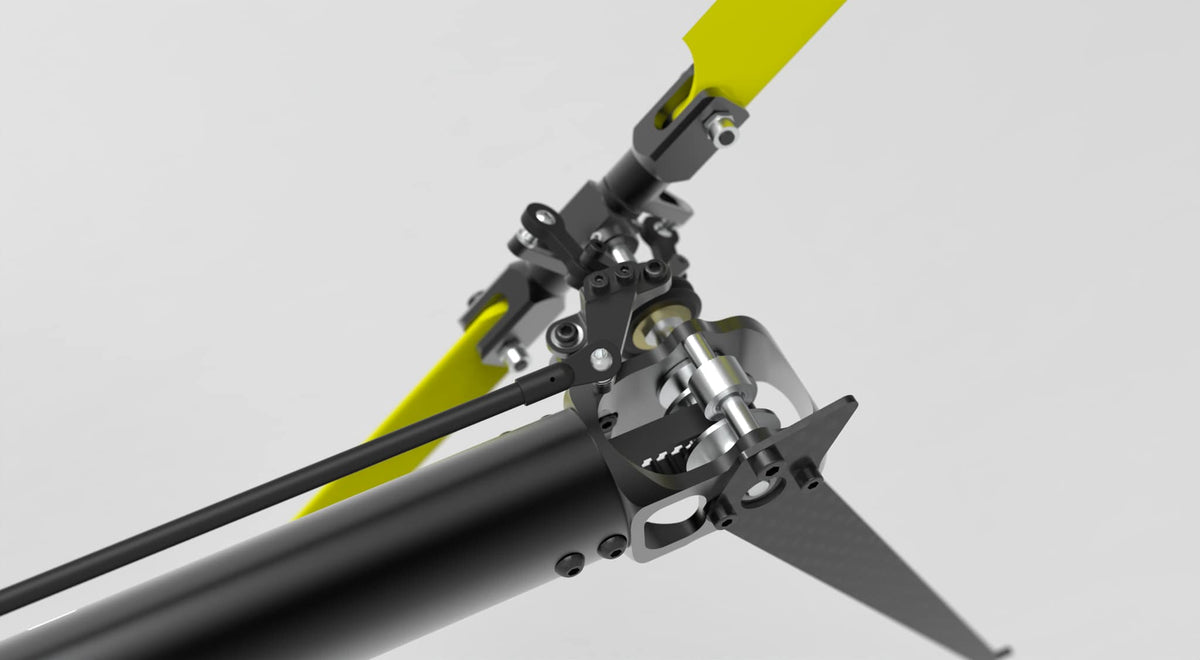
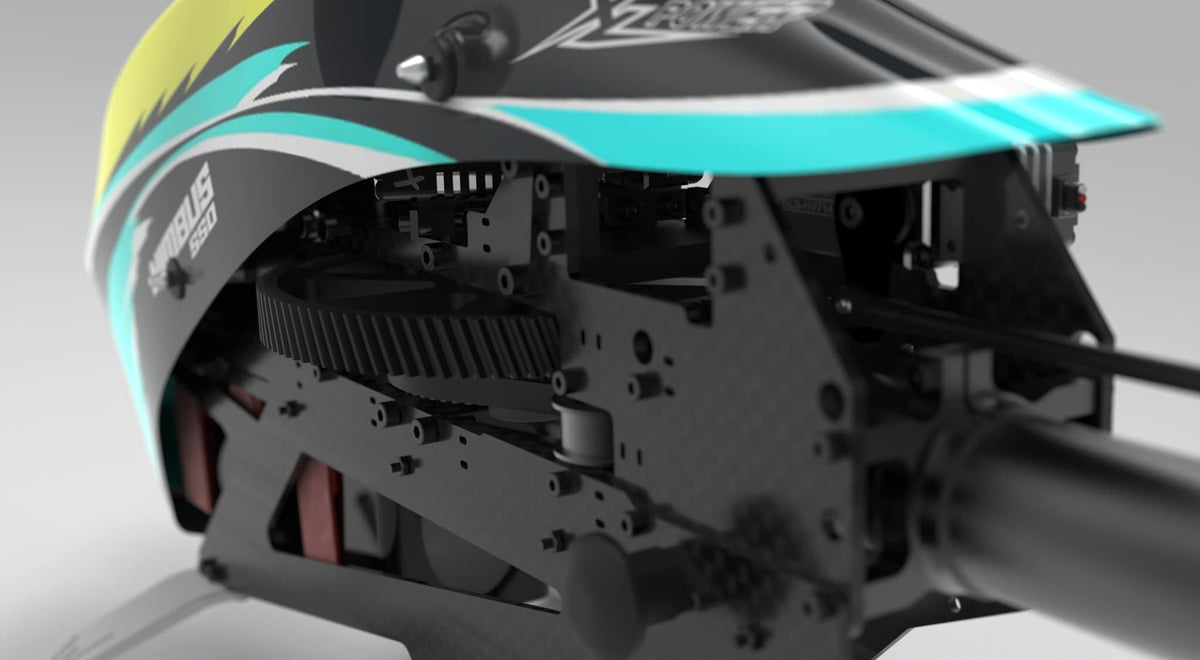
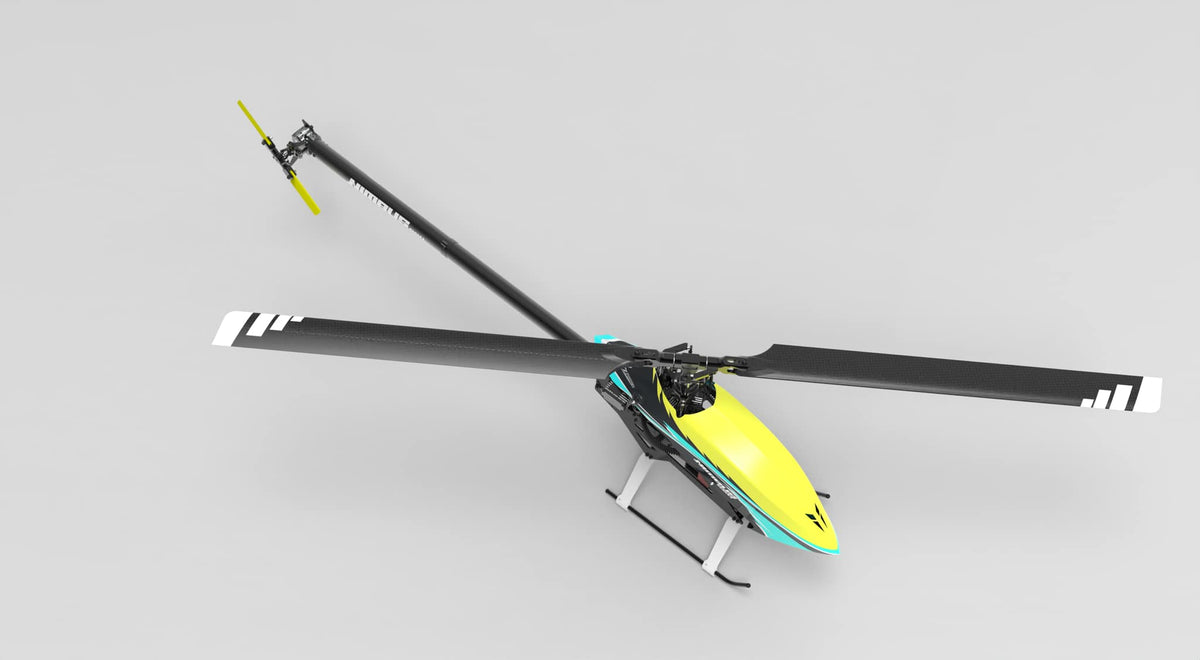
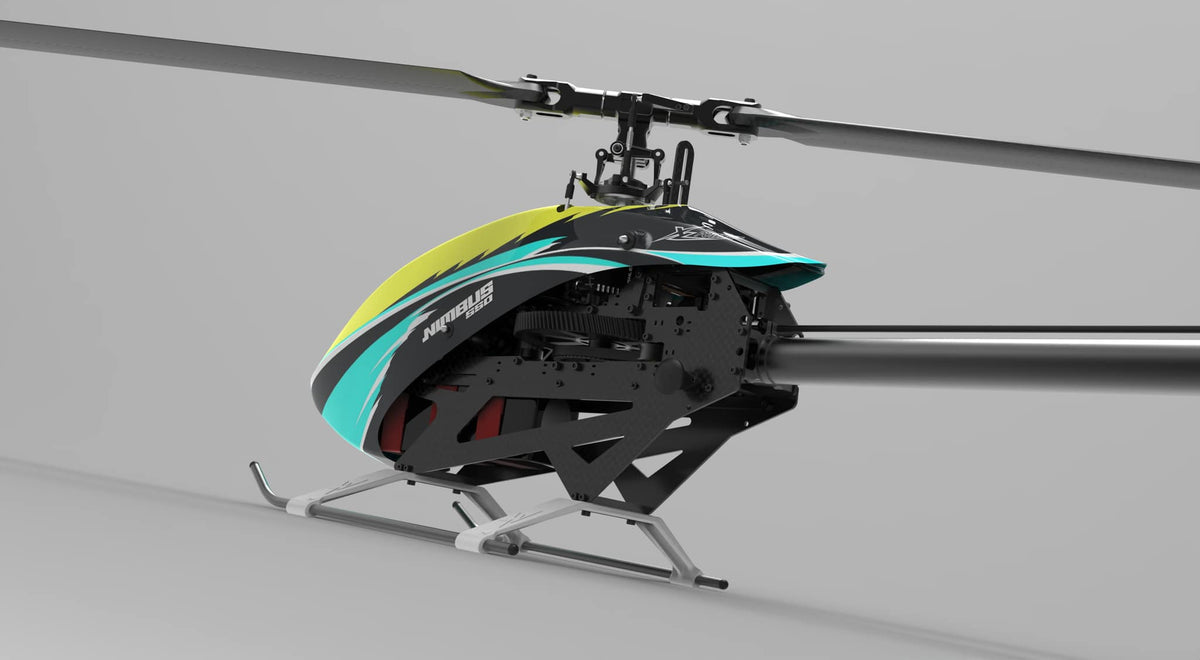
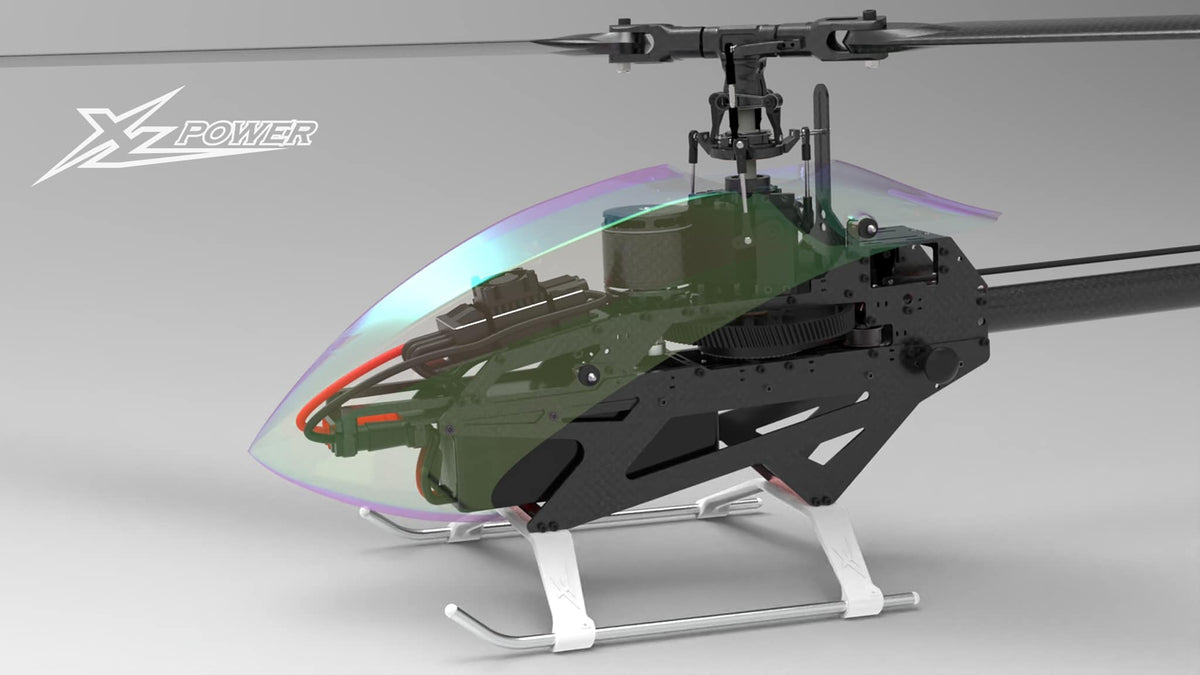
XLPower’s Nimbus 550 is the latest generation 550 class helicopter, utilizing proven design techniques found on the Specter 700 series. The result is a good looking, lightweight, and robust airframe with plenty of options available to customize the appearance and flight style.
The core of the airframe is a single piece 7075 aluminum bearing block assembly and servo mount providing rigidity to the frame and drivetrain. The main shaft is supported with large double row angular contact bearings increasing durability and bearing life to ensure long-term operation.
The cyclic servos are arranged in a 120-degree layout for optimal control geometry and motion over the entire control range. Two kit versions are available based off the pilot’s servo choice: a mini cyclic servo or standard size cyclic mounting bracket. Mini cyclic servos can reduce cost and are lighter weight, while the standard size servo option includes a third main shaft bearing block to support more powerful and robust servos. Both kits use a standard size tail rotor servo and the cyclic servo size mounting assembly is interchangeable with a minimal number of parts. All these components are mounted on high quality 2.5mm thick carbon fiber upper frames and lighter 2mm lower frame plates for unmatched frame strength and crash resiliency.
Similar to the Specter 700 V2, the Nimbus 550 battery tray system is able to be loaded into the helicopter from the front or the rear, enabling the optional quick-connect system in which the model to be powered up/down instantly without removing the canopy. The battery tray accepts all standard configurations all the way up to 12s power systems!
Designed to accept the most powerful power systems, the main gear hub consists of two one-way bearings providing reliability for the most extreme power combinations. A rigid motor mount is fixed directly to the frame’s main support structure, reducing flex under load. An optional second motor shaft support bearing is available for further rigidity.
One of the most notable qualities of the Nimbus 550, and proven on the Specter 700 V2, is the use of a large diameter tail boom (27mm for the Nimbus 550) without the need for boom supports. Not only does a large tail diameter tail boom increase tail performance, but also has a super sleek look. The tail servo and tail control rod are mounted in the upper frame raising the vertical CG to improve flight characteristics.
Every detail has been tested and proven to give pilots the best performance and functionality, such as sacrificial blade grip arms designed to bend or break in a crash, one-piece tail box to simplify the build process and replacement of tail shaft bearings, a damped tail rotor system that stays smooth even at high RPM, plus a low and wide landing gear increasing ground stability; reducing the likelihood of tip-overs in autorotation and hard landings.
With an average flying weight of ~2.9Kg (outfitted with a 5200mAh 6s LiPo) the Nimbus 550 will meet all demands with agile, responsive, and a confidence building feel… flight after flight.












